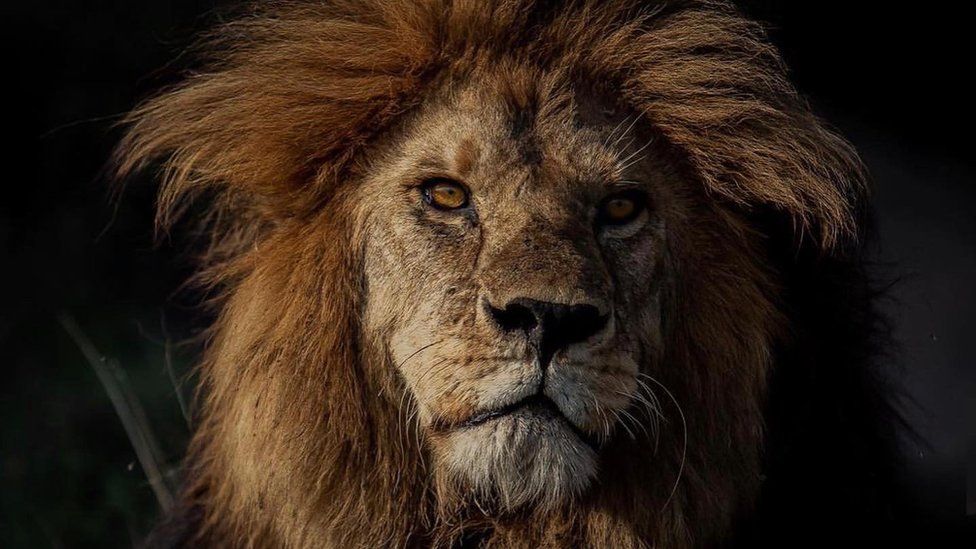In a fascinating study conducted at South Africa’s Kruger National Park, it has been discovered that wild animals fear the sound of human voices more than the roars of lions. Researchers played recordings of people talking normally through concealed speakers near water holes within the park and found that approximately 95% of animals were extremely frightened and quickly ran away. Surprisingly, recordings of snarling and growling lions elicited significantly less alarm. The study’s findings suggest that animals in the park, including elephants, giraffes, and warthogs, have learned to associate human contact with danger, likely due to hunting and other harmful human activities. This fear of humans extends beyond Kruger National Park, with research indicating that wildlife globally tends to fear humans more than any other predator. These findings present a challenge for wildlife tourism areas, as the human visitors they aim to attract may inadvertently scare off the very animals they hope to see. On a positive note, the study also highlights the potential of using human sounds to protect vulnerable species and deter illegal poaching.
Study in Kruger National Park
Kruger National Park in South Africa is home to a diverse range of wildlife, including antelopes, elephants, giraffes, leopards, and warthogs. A recent study conducted in the park has revealed an interesting finding: wild mammals fear human voices more than they fear lions. This discovery sheds light on the impact of human presence on animals and has significant implications for wildlife tourism and conservation planning.
Experiment Details
To investigate the fear response of wild mammals to different sounds, researchers conducted an experiment in Kruger National Park. Speakers were hidden at water holes, and recordings of both human voices and lion sounds were played. The human speech included common local languages spoken in South Africa, while the lion sounds comprised snarls and growls.
The results of the experiment were striking. Approximately 95% of the animals in the park were extremely frightened and quickly ran away when they heard human voices. In contrast, the recordings of lion sounds elicited significantly less alarm among the animals. Interestingly, some elephants even attempted to confront the source of the lion sounds, displaying a different response compared to other mammals.
Reasons for Fear
The fear exhibited by animals in response to human voices can be attributed to their learned understanding that contact with humans is dangerous. Over the years, wildlife has experienced the negative consequences of interaction with humans in the form of hunting, gun use, and the use of dogs to catch them. These activities have led to a general pattern observed globally, where wildlife tends to fear humans more than any other predator.
Implications for Wildlife Tourism
The findings of this study pose a significant challenge for areas that rely on wildlife tourism. Human visitors often come to these areas hoping to witness and experience encounters with various wild animals. However, the inadvertent fear caused by the presence of humans can result in animals fleeing or hiding, making it more difficult for tourists to observe them in their natural habitat. This issue has implications for both the tourism industry and the conservation of these areas.
Ecology of Fear
The concept of the “ecology of fear” plays a crucial role in understanding predator-prey interactions and their impact on ecosystems. Predators inspire fear in their prey, which can lead to a reduction in prey numbers. In the case of humans and wildlife, the fear we induce can have profound effects on ecosystems. Thus, measuring, mitigating, and manipulating fear have become integral components of conservation planning and protected-areas management.
Protection Against Poaching
Interestingly, the study’s findings open up the potential to leverage human sounds in the protection of vulnerable species against illegal poaching. By using human sounds appropriately, it may be possible to deter poachers and protect valuable wildlife. The researchers are collaborating in experiments to test the effectiveness of using human sounds to deter rhinos from poaching hotspots. If successful, this approach may have broader applications in protecting other vulnerable species in various ecosystems.
Conservation and Wildlife
The study’s relevance extends beyond understanding the fear response of animals in Kruger National Park. It contributes to ongoing efforts in conservation by highlighting the impact of human sounds on animals. By integrating fear management strategies into conservation planning, we can better understand how to minimize the negative effects of human presence and ensure the long-term survival of wildlife populations.
Comparison to Lion Sounds
The study’s results indicate that animals are more fearful of human voices than the growls and snarls of lions. This suggests that animals associate human presence with danger, potentially due to past experiences with hunting, gun use, and other harmful activities. Understanding this association is crucial for both researchers and wildlife managers in developing effective conservation strategies.
Challenges and Opportunities
The study also raises challenges in managing the fear that humans inspire in wildlife. Balancing the desire to observe and engage with animals through wildlife tourism while respecting their natural behavior and habitat is a complex task.
However, it also presents opportunities to use fear manipulation for conservation goals. By carefully understanding and mitigating the fear response in wildlife, we can improve the effectiveness of conservation efforts. This includes considering fear as an integral component of conservation planning and developing strategies that minimize disturbance to wildlife.

Conclusion
The study conducted in Kruger National Park reveals that wild mammals fear human voices more than they fear lions. This fear is likely rooted in animals’ learned associations between human presence and danger due to past negative experiences. The implications of this research are far-reaching, particularly for wildlife tourism and conservation planning. It highlights the challenges faced by areas heavily reliant on wildlife tourism and emphasizes the need to integrate fear management into conservation strategies. By understanding the impact of human sounds on animals and considering fear as a vital consideration in conservation efforts, we can better protect and conserve vulnerable wildlife populations.


